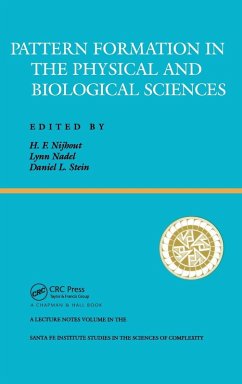
Dynamics of Biological Systems
Versandkostenfrei!
Versandfertig in 1-2 Wochen
108,99 €
inkl. MwSt.
Weitere Ausgaben:

PAYBACK Punkte
54 °P sammeln!
Applying complex systems science to biology, this book develops mathematical models for understanding biological systems. Based on his one-semester course, the author suggests appropriate control strategies to mediate the effects of past and future pandemics, assuming no prior knowledge of mathematics. Each chapter presents exercises with worked solutions as well as computational and research projects. Topics covered include pattern formation and flocking behavior, the interaction of autonomous agents, hierarchical and structured network topologies, epidemiology, biomedical signal processing,...
Applying complex systems science to biology, this book develops mathematical models for understanding biological systems. Based on his one-semester course, the author suggests appropriate control strategies to mediate the effects of past and future pandemics, assuming no prior knowledge of mathematics. Each chapter presents exercises with worked solutions as well as computational and research projects. Topics covered include pattern formation and flocking behavior, the interaction of autonomous agents, hierarchical and structured network topologies, epidemiology, biomedical signal processing, computational neurophysiology, and population dynamics. A solutions manual is available for qualifying instructors.














